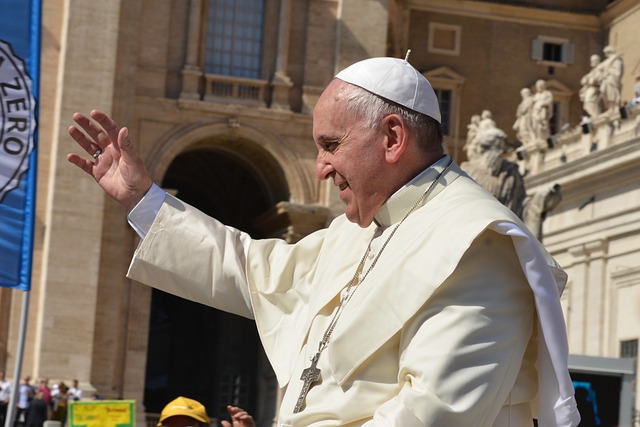That’s how the late Pope Francis responded to an interview when an Italian journalist asked him in 2013 how he might act as a confessor to a gay person, his response was with this important question: “Who am I to judge?”…keying up a more liberal and compassionate stance than previous Popes. And his compassion extended in many other ways beyond the LGBTQ community.
What a unique soul our past Catholic Pope was. And yes, I said “our” even though I’m not Catholic. Since Pope Francis considered himself the “people’s Pope” I have no doubt he always considered his mission to be very inclusive for all of us. Admittedly, the closest that I get to any church these days is Episcopalian…you know, that Catholic lite religion…one third less the guilt.
Growing up, my conservative church taught (as many still do) that they were the only church/religion that had “the” answers…and certainly that included the Catholics since we were told “they” prayed to Mary and were required to confess their sins to their local priest. In fact, Dad loved to tell Catholic jokes. One I recall was about a man who did something that brought him to confess his “sin”, after which, the Priest told him to say 5 Hail Mary’s and to leave $10. This “sinner” opted to say 10 hail Mary’’s and leave $20. He said was paying double for the next time he made this sinful indiscretion.
Recently, I found a PBS special highlighting Pope Francis’ life that I found so enlightening. He was born Jorge Mario Bergoglio (the oldest of five children) in Buenos Aires to Italian immigrant parents of modest means.
At 21, Bergoglio entered the Society of Jesus (Jesuits) in 1958. He studied humanities, philosophy, and theology in Argentina and Chile. Ordained a priest in 1969, he took his final Jesuit vows in 1973. He served as a teacher, spiritual director, and later as provincial superior of the Jesuits in Argentina from 1973 to 1979, navigating the turbulent years of Argentina’s Dirty War, a period of military dictatorship and human rights abuses. His leadership during this time remains a bit controversial, with some accusing him of insufficient resistance to the regime, though he has denied complicity and is credited with protecting vulnerable individuals.
Elected pope at 76, Bergoglio chose the name Francis, inspired by St. Francis of Assisi, signaling his commitment to poverty, peace, and environmental stewardship. Known for his warmth, humor, and accessibility, Francis often engaged directly with people, from washing prisoners’ feet to embracing the disabled.
In 2015, Francis was the first Pope to address our US Congress where he stated: “Do unto others as you would have others do unto you, this rule points us in a clear direction; let us treat others with the same passion and compassion with which we want to be treated. Let us seek for others the same possibilities which we seek for ourselves.”
Although he was a pontiff well-attuned to the concerns of most Catholics…no one is perfect. Sadly, Pope Francis had a surprising blind spot when it came to the abuse crisis. His election took place at a time when the problem of sexual abuse of minors by clergy was well known. While important steps had been taken to address some abuse scandals during his predecessor’s tenure, there was still much more the church needed to do.
Survivors of church sexual abuse say the next pope needs to do more to tackle clergy guilty of abuse and hold bishops accountable when they mismanage cases.
Nevertheless, Pope Francis has reshaped the papacy’s tone, prioritizing humility, dialogue, and social justice in a very positive way. His emphasis on a more collaborative Church governance…culminating his focus on a “Church of the poor” and ecological responsibility has left a lasting global impact. May the newly elected Pope reinforce his love and compassion for all.
Political Humor: How did the GOP shoot themselves in the foot? With a Cult 45.

